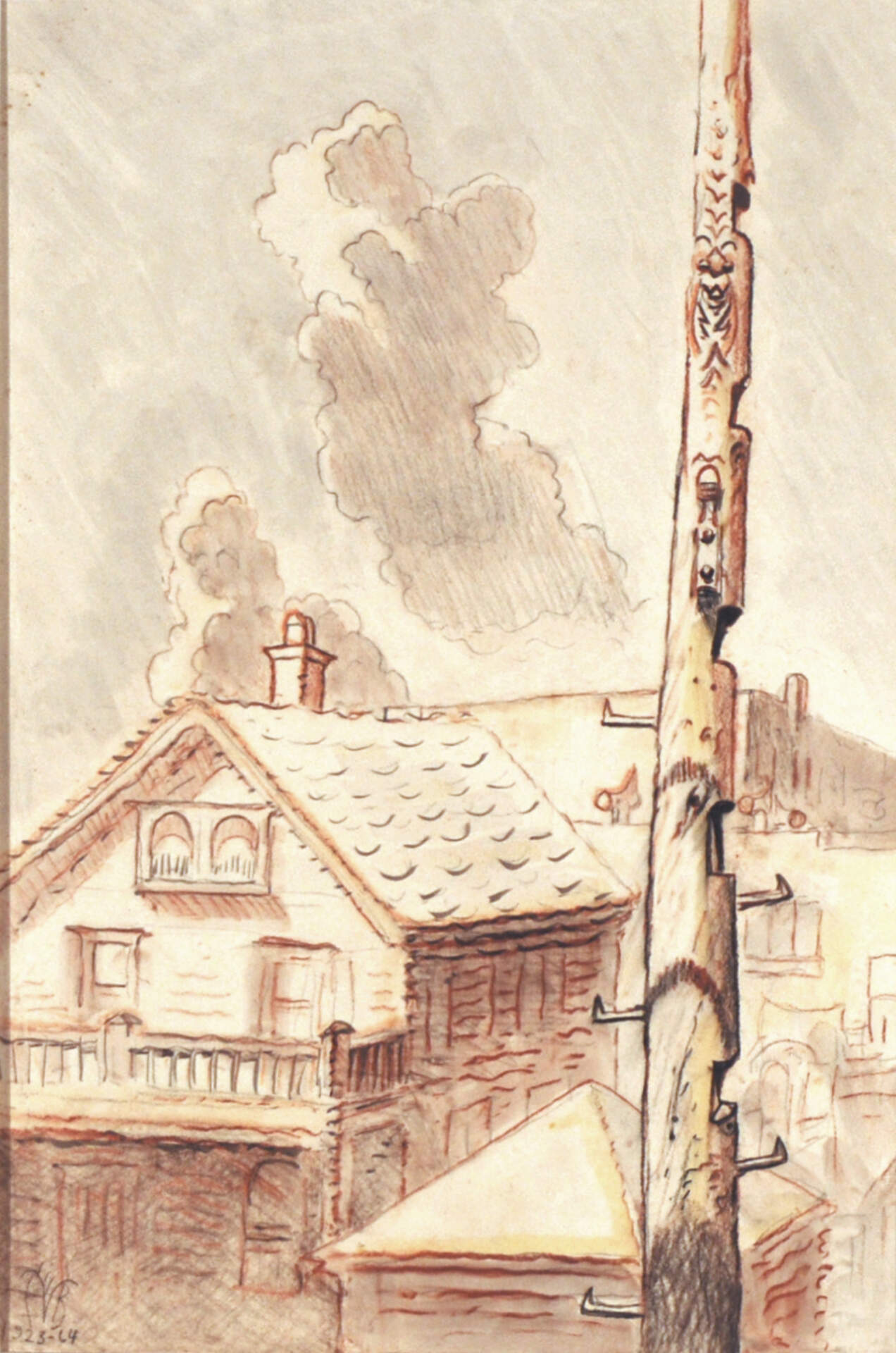
Charles E. Burchfield (1893-1967), Cicada and Telegraph Pole, 1923-64; red and black Conté crayon, carbon pencil, and watercolor on paper board, 18 1/4 x 11 1/4 inches; Burchfield Penney Art Center, Gift of Charles Rand Penney, 1994
Charles E. Burchfield, Journals, July 23, 1914
Tuesday, Jul 23, 2013
Locusts become musical at twilight. To how few people is the metallic rasp of a locust, music. It and kindred sounds — i.e. such as have no delicacy of sound nor musical rhythm as the caw of a crow, the “yipe” of a sheitpoke or the blung of a frog — are classed by a certain kind of uninterested people as harsh & discordant and not to be reckoned among nature’s beauties, forgetting that nothing in nature is ugly, when we consider that one of the greatest & perhaps the only element of beauty is usefulness. Music does not mean a wonderful sonata, nocturne, or drama played on wonderful instruments by well-trained men, or; sung by great singers with wonderful voices, alone; music is much more far-reaching and all embracing. Any sound that brings to the hearer’s mind the remembrance of some beautiful aspect of nature, some reminder of a happy event, or is in some way vitally related to the life of the hearer, is music of the divinest sort. Thus a shrieking freight whistle becomes music, the sound of tonneaus being hammered ...the cannon-like booms of die-presses, dropping, or the rattle of wagons on pavements. And what is it perhaps that makes music of the cicada’s song? When hearing them, one sees in his “inward eye” an opaque blue sky, with a few heat whitened clouds pasted to it, a long white dusty road stretching endlessly ahead, lined with dust yellowed plants and windblown trees.
Charles E. Burchfield, July 23, 1914